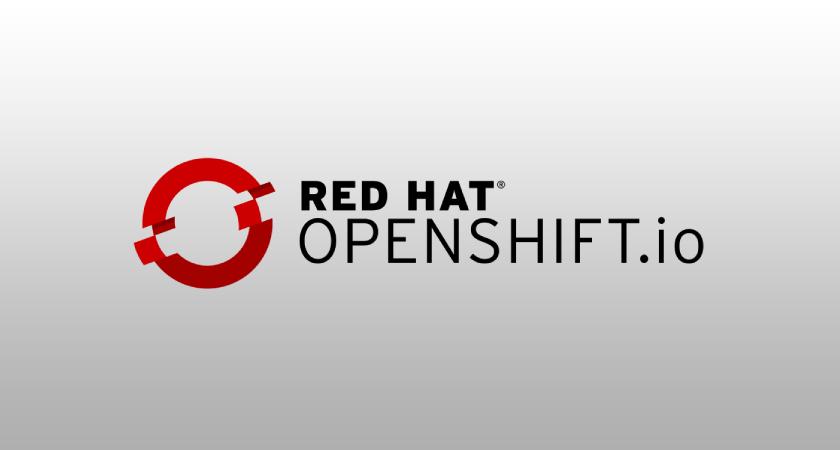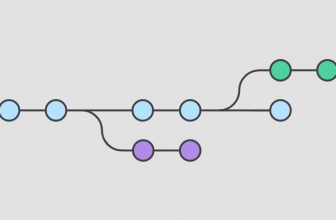
Here at SkillComplete, our team of experienced web developers and technical enthusiasts has conducted thorough research of all the available courses on leading online learning platforms such as Udemy, Coursera, Edx, Linkedin learning, etc, and compiled the list of Best Openshift courses, tutorials, training, certifications and classes for you. We have also listed free resources to help you in your learning journey.
Previously, we have consolidated the best Docker, Jenkins and Kubernetes courses to learn in 2022. The listed programs are suitable for beginners, intermediate, and advanced developers. First, let us look at a brief introduction about Openshift.
Containers are rapidly becoming a deployment technology of choice in organizations following DevOps principles and practices. Moving applications and services from conventional deployment platforms to containers makes the applications deployable on single clustered cloud computing architecture instead of many different sets of hardware configurations.
Red Hat OpenShift Container Platform provides developers and IT organizations with a hybrid cloud application platform for deploying new and existing applications on secure, scalable resources with minimal configuration and management overhead. OpenShift Container Platform supports a wide selection of programming languages and frameworks, such as Java, JavaScript, Python, Ruby, and PHP.
It is a powerful Kubernetes-based platform with added functions, a platform that can help you run your applications securely and allows you to scale them up as demand rises. It streamlines the DevOps process by providing an intuitive development pipeline. It also provides integration with multiple tools to make the deployment and management of cloud applications simpler.
Best online courses and tutorials to learn Openshift in 2022
Practical OpenShift for Developers – OpenShift 4 – Udemy
It is one of the highest-rated Openshift courses on Udemy. This course has over 5,000 students and an average rating of 4.5. The creator of the course Mac Collins is a highly rated instructor and has taught over 6,000 students on Udemy. The course teaches the latest version of Openshift, i.e., Openshift 4 in great detail. In this course, you will learn to make the most of Open shift containers and deploy any type of application to the OpenShift Container Platform. This will help you gain a professional-level understanding of Openshift in just 6 hours!
Key points
- Deploy your existing applications to OpenShift
- Understand 15 types of OpenShift resources
- Configure applications to follow OpenShift best practices
- Develop advanced application templates
Pre-requisites: Basic command-line skills are required, but no prior knowledge of Openshift is necessary.
Duration: 6.5 hours | Level: Beginner | Access: Lifetime | Certificate: Certificate of completion
OpenShift for the Absolute Beginners – Hands-on – Udemy
Learn the fundamentals and basic concepts of OpenShift that you will need to build a simple OpenShift cluster, and get started with deploying and managing applications. If you are a DevOps or Cloud developer who intends to learn Openshift as a beginner, this course is tailor-made for you. It contains simple and easy-to-understand lectures and offers demos showing how to set up and get started with OpenShift. It also has assignments to put your skills to the test.
Key points
- Deploy OpenShift with Minishift
- Understand Projects, Users
- Understand Builds, Build Triggers, Image streams, Deployments
- Understand Network, Services, and Routes
- Configure integration between OpenShift and GitLab SCM
- Deploy a sample Multi-services application on OpenShift
Pre-requisites: No prior knowledge of Openshift is required.
Duration: 3 hours | Level: Beginner | Access: Lifetime | Certificate: Certificate of completion
Introduction to Containers w/ Docker, Kubernetes & OpenShift – Coursera
This course aims to introduce the learner to the concept of containers and covers how containers are different from virtual machines. It also covers the importance of containers in cloud computing and focuses on the basics of related technologies such as Docker, Kubernetes, Red Hat OpenShift, and Istio.
Throughout the course, you can test your knowledge with hands-on exercises. It covers getting started with Docker, orchestration and scaling with Kubernetes, and finally simplifying deployments with OpenShift.
Key points
- Understanding the benefits of containers
- Building and running a container image
- Understanding the Kubernetes architecture
- Writing a YAML deployment file
Pre-requisites: a foundation-level understanding of Cloud Computing is desirable.
Duration: 12 hours | Level: Beginner | Access: Lifetime | Certificate: Certificate of completion
Fundamentals of Containers, Kubernetes, and Red Hat OpenShift – Edx
This course provides an introduction to containers and orchestration technology using Docker, Kubernetes, and the Red Hat OpenShift Container Platform. You will learn to containerize applications and services, test them using Docker, and deploy them on a Kubernetes cluster using Red Hat OpenShift.
Key points
- Creating containerized services.
- Managing containers and container images.
- Creating custom container images.
- Deploying containerized applications on Red Hat OpenShift.
Pre-requisites: Ability to use a terminal session and issue operating system commands.
Duration: Self-paced | Level: Beginner | Access: Lifetime | Certificate: Certificate of completion
Deploying Applications to Red Hat OpenShift Container Platform – PluralSight
In this course, you will learn the foundation of OpenShift application development. First, you will learn how OpenShift uses the container architecture to manage applications. Next, you will explore how to deploy predefined applications from the OpenShift catalog to speed up your application development process. Finally, you will discover how to deploy custom applications to OpenShift.
By the end of this course, you will have a foundational understanding of the Red Hat OpenShift architecture. You will be able to use the OpenShift Web Console to deploy predefined applications. Additionally, you will understand how to build and deploy applications from source code.
Key points:
- A crash course on Openshift containers
- Highly rated by the users
- You will learn the basics of OpenShift container architecture and application deployment.
Pre-requisites: The ability to use Linux terminal sessions, issue operating system commands, and be familiar with shell scripting.
Duration: 4 hours | Level: beginner | Access: Lifetime | Certificate: no certificate
Red Hat OpenShift Administration II: Operating a Production Kubernetes Cluster – (DO280) – RedHat
The course teaches how to configure, troubleshoot, and manage an OpenShift Container. It is a hands-on, lab-based course that shows you how to successfully install a cluster, manage it, and troubleshoot the deployment of containerized applications. Learn from the masters at Red Hat themselves.
They have a three-course series. This way, you can start as a beginner and become a master of Openshift. You can also register for obtaining Red Hat certification as well.
Key points:
- Understanding the Platform as a Service and advantages of building one with Containers
- Installing and configuring an Openshift Cluster using various options
- Learning with other enthusiasts.
Pre-requisites: The ability to use Linux terminal sessions, issue operating system commands, and be familiar with shell scripting. Prior experience with web application architectures and related technologies is preferred.
Duration: Self-paced | Level: All levels | Access: Lifetime | Certificate: Appear for certification by Red Hat
Conclusion:
That’s all about the top Openshift courses, tutorials, training, certifications, and classes. OpenShift is a cloud development Platform as a Service (PaaS) developed by Red Hat. It is an open-source development platform, which enables developers to develop and deploy their applications on cloud infrastructure. Hope the above list of consolidated best courses helps you in your learning journey. You may also want to check our list of best Azure, AWS and Docker courses.
Thanks for reading this article. If you found the list useful, share it with your friends and colleagues. In case you have any questions or feedback, please feel free to drop a note.
Happy learning!



![Best Jenkins Courses Online – Updated [April 2024]](https://skillcomplete.com/wp-content/uploads/2022/01/jenkins-blog-1-336x220.jpg)